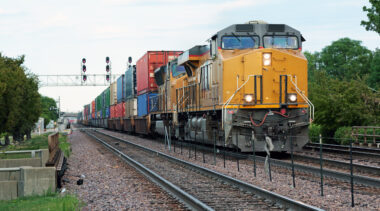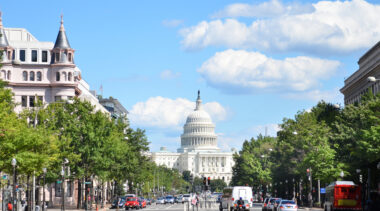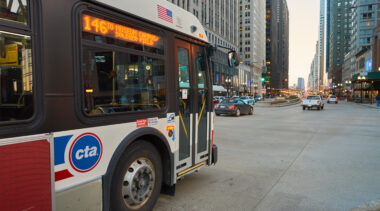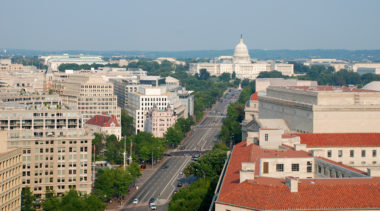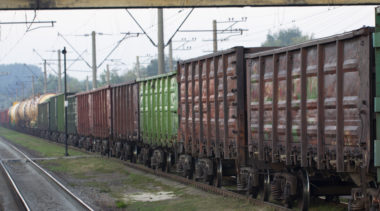Marc Scribner is a Senior Transportation Policy Analyst at Reason Foundation.
Scribner's work focuses on a variety of public policy issues related to transportation, land use, and urban growth, including infrastructure investment and operations, transportation safety and security, risk and regulation, privatization and public finance, urban redevelopment and property rights, and emerging transportation technologies such as automated road vehicles and unmanned aircraft systems. He frequently advises policymakers on these matters at the federal, state, and local levels.
Scribner has testified numerous times before Congress at the invitation of both Democrats and Republicans on issues including highway revenue collection, traffic congestion management, public transit productivity, freight rail regulation, airport financing, and air traffic control modernization. He is a member of the Transportation Research Board’s Standing Committee on Developments and Advancements in Transportation Technology Law.
He has appeared on television and radio programs in outlets such as Fox Business Network, National Public Radio, and the Canadian Broadcasting Corporation, and has also written for numerous publications, including USA Today, The Washington Post, Wired, CNN.com, MSNBC.com, Forbes, and National Review. And his work has been featured by The Wall Street Journal, New York Times, Washington Post, Los Angeles Times, Scientific American, Congressional Quarterly, Washington Monthly, POLITICO, CNN, Bloomberg, BBC, C-SPAN, and other print, television, and radio outlets.
Scribner joined Reason Foundation after more than a decade at the Competitive Enterprise Institute, where he was a senior fellow in transportation policy. He received his undergraduate degree in economics and philosophy from George Washington University.
-
Right Now, Infrastructure Policy Should Focus on Fixing and Maintaining What We Have
Congress should focus on maintaining and modernizing existing infrastructure under a “fix it first” strategy.
-
Comments on the National Highway Traffic Safety Administration Framework for Automated Driving System Safety
The NHTSA should not attempt to develop government-unique technical standards and incorporate those government-unique standards into Federal Motor Vehicle Safety Standards for automated vehicles at this time.
-
Should Freight Train Crew Sizes Be Regulated?
Part seven of Reason's Debatable Ideas series examines crew-size minimums.
-
What’s the Story Behind Increased Traffic Fatalities During the Pandemic?
While urban areas have seen an uptick in motor vehicle fatalities during the pandemic, the trend is mostly coming from rural areas.
-
Debatable Ideas: Examining Key Transportation Issues, Myths and Misconceptions
In this series, Reason's transportation policy analysts examine key infrastructure issues, including common myths and misconceptions found in today's policy debates.
-
Should Automated Vehicle Regulations Precede Technical Standardization?
Part three of Reason's Debatable Ideas series examines whether premature regulations would actually threaten ongoing AV development and the large potential safety and mobility benefits of automated vehicles.
-
How the Biden Administration and Congress Can Pave the Path for Automated Vehicles
New policy brief lays out several steps federal policymakers can take to adapt the automotive regulatory apparatus to automated driving system technologies.
-
Biden’s USDOT Is Positioned to Advance Sound Automated Vehicle Policy
Automated vehicles have the potential to dramatically improve safety, mobility, and accessibility for Americans.
-
Biden’s Favored Regulations Could Limit His Own Infrastructure Plans From the Start
If the Biden administration adopts a pro-regulatory reflex, its transportation and infrastructure policy aspirations are likely to fail in the same manner as the Trump administration’s “Infrastructure Week” did.
-
Should the Federal Government Fund Highways and Transit Equally?
Examining what Americans are getting in return for mass transit’s share of surface transportation funding.
-
Michigan’s Latest Protectionist Bill May Backfire on Some Automakers and Car Dealers
This piece of legislation is so reckless that it may ultimately lead to the weakening of mandatory indirect auto sales laws, which would be great news for consumers.
-
Congress Gets Surface Transportation Extension, But Now What?
Congress needs to eliminate the federal barriers that stand between states and 21st-century surface transportation infrastructure.
-
Keeping Auto Safety Regulations Current In a Rapidly Evolving Technology Landscape
There is a growing gulf between automotive technology developers and safety regulators that must be addressed.
-
Is the Department of Transportation’s Deregulatory Initiative Winding Down?
A recent publication suggests USDOT’s regulatory reform effort has slowed.
-
The Critical Role of On-Road Testing for Automated Vehicle Development
Automated vehicle experts explain the importance of public road testing.
-
Surface Transportation Board May Finally Settle Freight Rail Environmental Policy Dispute
The Surface Transportation Board is likely to side with railroads in a dispute over which of two laws apply to discharges of coal particles incidental to the normal operation of railcars in transit.
-
Partial Deregulation Keeps Freight Rail on Strong Footing During the Coronavirus Outbreak
The coronavirus pandemic has reduced road traffic by 40 percent, mass transit ridership by 80 percent, and passenger air travel by 95 percent.
-
Does the FAA Have the Authority to Require Passengers to Wear Masks?
The balance of evidence suggests the FAA does not possess the clear power to issue and enforce a mask rule.



